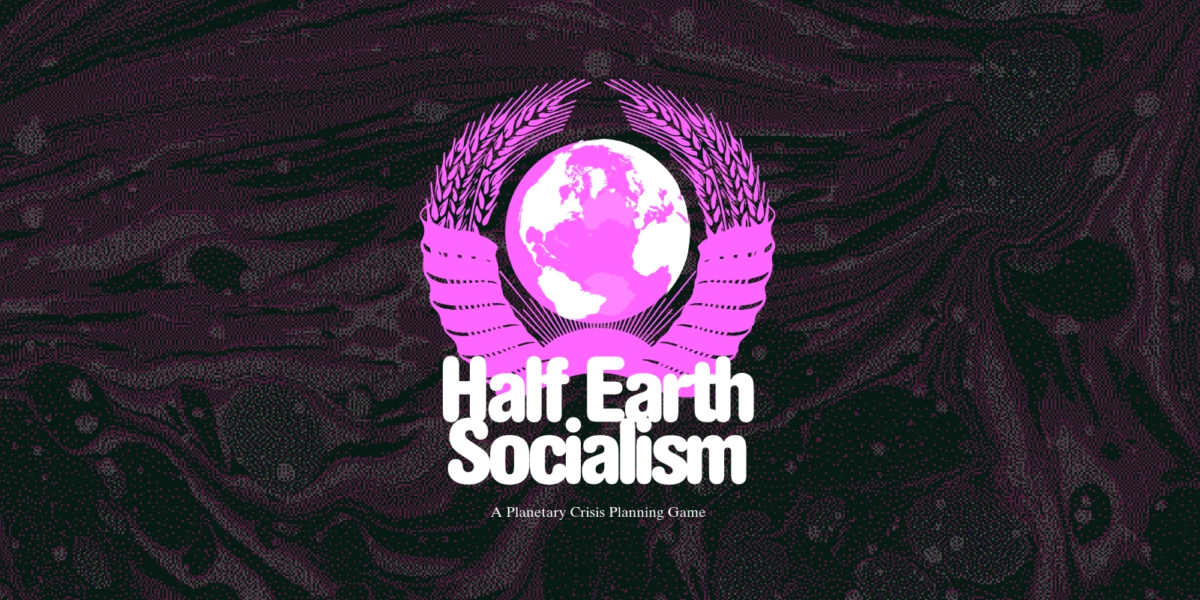- cross-posted to:
- scicomm@mander.xyz
- opensourcegames@lemmy.ml
- freegames@lemmy.ml
- cross-posted to:
- scicomm@mander.xyz
- opensourcegames@lemmy.ml
- freegames@lemmy.ml
This game is great. By playing it you understand also the point of view of the creator, that is “tech won’t save us”
Yes it is so biased against “accelerationists” it is funny.
However the game design is great. I, like probably every player, disagrees with some assumptions but I really like the way it plays out
You can get those ‘accelerationists’ within the coalition by funding lots of research, just don’t expect it all to work, don’t even need to apply it. Actually I think that ‘bias’ is realistic. Problem is rather political groups that are missing - religious for example.
IT is hilariously biased against nuclear power. Nuclear research is the only one that has a random factor “you have a tiny chance of getting it”.
Well you can ‘win’ leaving current nuclear fraction as is, the old stuff keeps working without any disaster (missing factor ??).
Otoh, nuclear fusion has been tomorrow’s breakthrough for half a century …Otoh, nuclear fusion has been tomorrow’s breakthrough for half a century …
“Ungrowth” has been a proposed solution for half a century as well, yet this one happens with certainty overnight once the mandate is passed.
It is not just fusion, fast breeder reactors as well. But of course, with them the game becomes much easier. And I love that farm automation has a lower impact than the biochar research.
Indeed, as I mentioned in my main comment
Some of the ‘mandates’ are far too easily implemented.
At least that one requires a ‘parliament majority’ - otoh big groups are not in that parliament at all… Actually ‘ungrowth’ in the north may just happen anyway, slowly, for demographic reasons.
Maybe this type of game could provide a structure to help people to debate factors, if could vary (packages of) assumptions… ?
As it is, might encourage some to wait for a revolution rather than engaging current options.
He also hates cats.
Like rants about them in the grauniad level hate.
This is so dope.


Soylent green is people!
I really enjoyed playing this, it’s a surprisingly fun and competently made little game.
I did find it a little unrealistic how easily you could ignore fossil-fuel interests, they never posed much of a problem or threw any curve balls when aggressively switching to green energies. But maybe their grip on power is tenuous, post global revolution?
That’s probably the thing: switching out of fossil fuel is economically and technically easy. It is politics that causes problems.
Cool. Got overthrown before the fourth planning meeting.
OK, so I tried this, able to win on the second round. :-)
First time you risk to do some things too early, others you must do early, but I won’t spoil the challenge by giving details.
Good emphasis on land-use limitations.Concept is nicer than ‘fate of the world’ which was rather similar (and even fotw told me their idea was partly inspired by an idea on my website about 23 years ago). Both this and fotw based on ‘cards’, while prefer to adjust levers gradually, and see graphs move in real-time.
(btw going back even further, does anybody remember ‘lincity’ )?Some things confusing - e.g. you adjust percentages not totals, but totals change, which hits limits in not-obvious ways. No mention of space-heating challenge eg heat-pumps (suggests made in tropics?), no modal-shift in transport (except inside cities). I’d like to see whether the numbers reflect current emissions of China, and Arabia (I doubt it, doesn’t fit the ‘south is good’ narrative). Overall I suspect that the calculations are too optimistic, but can’t say more without detailed plots of changes over time, or a view of the engine code.
But biggest unrealities:
- We don’t have such a scenario - there is no global planner - “god games” are too easy concept.
- The fraction of contrarians is larger (than the 3 groups I couldn’t satisfy in this game), maybe increasing (?).
- Some of the ‘mandates’ are far too easily implemented.
I ponder how to design a game which is more realistic in these respects.
Having said that, I think the ‘magic card’ has some merits, if everybody would play, maybe that helps tip the balance.The code is open sourced at https://github.com/frnsys/half_earth. The documentation implies that it should be easy to generate plots, not to mention that the engine is right there.
Thanks, I’m having a look.
Some elements quite sophisticated, seems a good use for wasm (although I prefer scala.js for an interactive model).
Use of Hector makes sense, but seems emissions drop more negative than I can get from my model, maybe it lacks some feedbacks, or has some double-counting of policy-impacts?
Are developers still active in this project - discussion of issues mostly a year or more ago ?
Game design has to thread a line between realism and fun. This is not supposed to be realistic but a way to tinker with scenarios
Sure, but this is also a real game we need to win (well, maybe not <1C in that timeframe) , and we only get one chance to play. This example helps people learn, but there are things to adjust.
Another (I didn’t mention above) is that construction (including new energy, ‘green’ cities etc.) takes massive time, energy, materials - it’s not clear that’s sufficiently taken into account, and likewise not by real “socialist” planners.
Does the alliance system seem broken for anyone else? I tried doing several “evil” runs, but I can never get the authoritarian or Malthusian to like me despite implementing stuff they are supposed to like. (I end up getting the utopian and environmentalist as allies 🤨) Maybe I’m just bad at being evil lol.
(Also it seems weird you only get ally points when you complete a project, usually in politics alliances are formed around throwing money at things, not actually getting them done)
Same. I like the overall gameplay but I find it bad game design that it is not possible to win or at least progress a bit along the “bad” paths.
Really enjoyed several play-throughs. OCC has a lengthy interview with the authors (of the book that is the basis for this game) on Nebula.
On a side note: Some days ago I started playing Urbek City Planner which is not as radical but gives me similar vibes.
I love this game!







